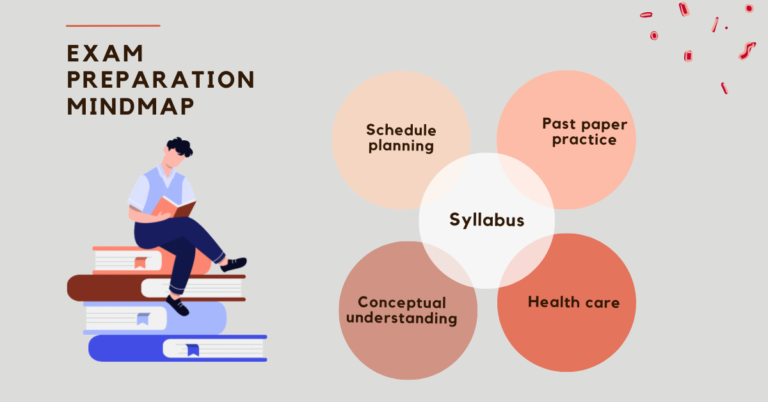Bachelor of Education: A Complete Guide


Nepal’s education sector is growing fast—and with it, the demand for trained and certified teachers. If you’re looking to build a meaningful and impactful career in education, a Bachelor of Education (B.Ed) could be your golden ticket. This guide gives you a 360-degree view of what it means to pursue a B.Ed in Nepal: from admission to curriculum, from universities to job prospects. Whether you dream of teaching in a classroom or shaping education policy, this degree could be your first step. So let’s break it all down—clearly, honestly, and in detail.
Introduction to B.Ed
What is a Bachelor of Education (B.Ed)?
The Bachelor of Education, commonly known as B.Ed, is an undergraduate degree designed to train future teachers and educational professionals. It’s typically a 3 to 4-year program depending on the university and specialization. This course isn’t just about learning how to teach; it’s about understanding how students learn, how to manage a classroom, how to craft effective curricula, and how to evaluate academic progress.
You’ll dive into psychology, pedagogy, educational philosophy, sociology of education, curriculum development, assessment methods, and a host of other subjects that shape effective educators. The course is very hands-on, involving lesson planning, mock teaching, internships in schools, and community-based research.
It’s not only for aspiring schoolteachers. B.Ed graduates in Nepal often go on to become educational consultants, curriculum designers, education officers, and even ed-tech entrepreneurs. The versatility of this degree makes it valuable even outside the classroom.
Why Choose B.Ed ?
Still wondering if this degree is right for you? Here’s why thousands of students choose B.Ed:
- Growing Demand: The Nepalese government has made education a national priority. As a result, both public and private schools are actively seeking trained teachers.
- Career Stability: Teaching offers long-term job security, especially in the public sector.
- Social Impact: As a teacher, you’re not just earning a salary—you’re shaping futures.
- Higher Studies: B.Ed is a gateway to M.Ed and PhD programs for academic careers.
- Affordable Education: Compared to medical or engineering degrees, B.Ed is more affordable and still promises a fulfilling career.
Eligibility Criteria and Admission Requirements
Academic Qualifications Required
To enroll in a B.Ed program in Nepal, candidates must meet specific eligibility requirements. While different universities may have slight variations, the general requirements are as follows:
- Minimum Qualification: Completion of 10+2 (Higher Secondary Education) or equivalent from a recognized board.
- Minimum Marks: Most universities require a minimum second division or 2.0 GPA in +2. Some may have stricter GPA requirements for specific majors.
- Preferred Streams: Although students from all streams can apply, having a background in Education, Humanities, or Social Sciences is often preferred.
For example, Tribhuvan University, one of Nepal’s oldest and most reputable universities, accepts students from diverse backgrounds but gives preference to those with relevant subjects such as English, Nepali, Social Studies, or Education at the +2 level.
If you’ve completed a certificate level or PCL in Education, you might even get lateral entry into the second year of a 3-year B.Ed program.
Entrance Exam and Admission Process
The admission process usually begins between May and August, depending on the institution. Here’s a breakdown of the typical steps:
- Application Form Submission: Fill out the online or offline form through the university’s admission portal.
- Entrance Exam (Optional): Some universities like Kathmandu University may require students to pass an entrance test covering basic general knowledge, English, and logical reasoning.
- Merit List Publication: Admission is based on your entrance performance (if applicable) or +2 results.
- Interview (Sometimes): Personal interviews are conducted in selective colleges, especially private ones.
- Final Admission and Enrollment: Once selected, candidates must verify their documents, pay the admission fee, and enroll in the course.
In short, if you’re serious about pursuing a teaching career, preparing early and keeping an eye on university announcements can give you a significant edge.
B.Ed Curriculum and Specializations
Core Courses and Duration
In Nepal, the duration of the B.Ed program varies depending on your previous education. Here’s a general breakdown:
- 4 Years (Regular Entry): For students who join after completing 10+2.
- 3 Years (Lateral Entry): For those who already hold a Certificate in Education (PCL Ed).
The core curriculum generally includes the following:
- Educational Psychology
- Foundations of Education
- Curriculum and Instruction
- Assessment and Evaluation
- ICT in Education
- Classroom Management
- Research Methodology
- Practice Teaching / Internship
The fourth year (in 4-year programs) typically includes a full internship, where students are placed in schools to gain practical teaching experience. This is crucial in preparing students for the real-world dynamics of a classroom.
Available Majors and Teaching Subjects
What’s exciting about B.Ed is that you can specialize in the subject you’re passionate about. Here are some of the most popular majors offered by universities:
- English Education
- Nepali Education
- Science Education
- Mathematics Education
- Population Education
- Health & Physical Education
- Social Studies Education
- Computer Education
- Economics Education
- Early Childhood Education
- Special Needs Education
Each specialization includes subject-specific teaching methods and advanced pedagogical strategies. For example, a student majoring in Science Education will learn not only the core content of science subjects but also how to teach them through experiments, visual aids, and interactive methods.
This wide range of options allows future teachers to align their passion with their profession—a key element in sustaining long-term job satisfaction.
Top Universities and Colleges Offering B.Ed
Tribhuvan University
Without a doubt, Tribhuvan University (TU) is the most prominent institution offering B.Ed programs in Nepal. Established in 1959, TU’s Faculty of Education is spread across multiple affiliated campuses all over the country, making education accessible even in remote areas.
Key Features:
- Offers both 3-year and 4-year B.Ed programs.
- Over 60+ constituent and affiliated campuses across Nepal.
- Offers a wide range of majors from Science to Social Studies.
- Affordable tuition compared to private institutions.
- Conducts regular exams and follows a semester-based curriculum.
Popular TU-affiliated campuses for B.Ed:
- Sanothimi Campus, Bhaktapur
- Mahendra Ratna Campus, Kathmandu
- Mahendra Bindeshwori Campus, Rajbiraj
Kathmandu University and Others
While TU leads in scale, Kathmandu University (KU) is known for its quality and innovation. Although KU’s education faculty is smaller, it provides modern facilities and a student-centric learning environment.
Highlights:
- Focus on education technology and global pedagogy.
- Modern classrooms, smaller batch sizes.
- Strong faculty with international exposure.
- Competitive admission process.
Other notable institutions:
- Purbanchal University
- Pokhara University
- Mid-Western University
- Far-Western University
- Nepal Open University (offers online/distance B.Ed)
Private colleges such as ACE Institute, Uniglobe College, and Orbit International College also offer B.Ed programs affiliated with national universities.
Fee Structure and Scholarships for B.Ed Students
General Fee Overview
Pursuing a Bachelor of Education in Nepal is relatively affordable compared to degrees in medicine, engineering, or business. However, costs can still vary significantly depending on the type of institution—public universities, constituent campuses, or private colleges.
Let’s break down the average cost range:
- Tribhuvan University (TU):
- Constituent campuses: NPR 25,000–35,000 total for the 4-year program
- Affiliated private campuses: NPR 40,000–80,000
- Kathmandu University:
- Around NPR 150,000–250,000 for the full program, depending on specialization and facilities
- Pokhara/Purbanchal/Mid-Western Universities:
- Fee structures are usually between NPR 50,000–100,000 for public campuses
- Private institutions can range from NPR 90,000–200,000
The fee usually includes:
- Admission & tuition fees
- Library & lab access
- Exam fees
- Internship or practicum charges
It’s important to ask for a detailed breakdown of the fee structure during admission to avoid hidden costs.
Scholarships and Financial Aid Options
Many institutions in Nepal offer scholarships to deserving or underprivileged students. These scholarships can be merit-based, need-based, or targeted toward marginalized communities. Some popular scholarship categories include:
- Merit-Based Scholarships:
Offered to students with top entrance scores or +2 marks. Usually covers full or partial tuition. - Need-Based Scholarships:
For students from economically disadvantaged backgrounds, verified through documentation. - Reservation-Based Scholarships:
Reserved seats and financial aid for students from Dalit, Janajati, Madhesi, or remote districts. - Special Scholarships:
For female students, students with disabilities, and children of teachers or martyrs.
Universities like Tribhuvan University and Kathmandu University have official scholarship offices where students can apply after enrollment. There are also external scholarships from NGOs, INGOs, and education-supporting organizations like:
- Teach For Nepal
- Room to Read
- British Council (partial funding in education programs)
- Local municipalities (especially for public school teachers in training)
These scholarships can significantly reduce the financial burden, making B.Ed an accessible and wise investment in your future.
Scope and Career Opportunities After B.Ed
Teaching Career in Government and Private Schools
A B.Ed degree opens the door to a stable and fulfilling teaching career across thousands of public and private institutions in Nepal. Once you’ve graduated, you’re eligible to apply for the Teacher Service Commission (TSC) exams for permanent teaching positions in government schools.
Here’s what that career path typically looks like:
- Level 1 (Primary School): Requires a PCL or +2 with 18 months of teacher training or B.Ed.
- Level 2 (Lower Secondary): Minimum B.Ed qualification
- Level 3 (Secondary School): Requires specialization in the teaching subject
Once you pass the Teacher Service Commission (Shikshak Sewa Aayog) examination and the interview process, you can secure permanent positions with benefits, including:
- Fixed salary with annual increments
- Provident fund and pension
- Paid leave and bonuses
- Job security
Private schools also actively hire B.Ed graduates for both teaching and administrative positions. Although salaries in private institutions can vary from NPR 15,000 to 40,000/month, many offer additional perks like food, accommodation, or performance bonuses.
Non-Teaching Roles for B.Ed Graduates
B.Ed isn’t just for classroom teaching. With the right specialization and experience, you can pursue a wide range of careers in the broader education ecosystem, such as:
- Curriculum Designer
- School Administrator/Principal
- Education Officer in NGOs/INGOs
- Educational Content Creator
- Instructional Designer
- E-learning Developer
- Education Policy Analyst
- Educational Counselor
Graduates who are more tech-savvy can even work in education technology (ed-tech) startups or create their own content platforms, coaching services, or YouTube teaching channels.
In essence, B.Ed is your entry point into a wide and versatile industry that’s not just growing, but evolving every year with new needs and innovations.
Pursuing Higher Education After B.Ed
Master of Education (M.Ed)
After earning a B.Ed, many graduates go on to pursue a Master of Education (M.Ed), which opens doors to more senior roles in teaching, research, or academic leadership. Nepalese universities like TU, KU, and Purbanchal offer M.Ed degrees in various specializations such as:
- Curriculum and Evaluation
- Educational Management
- English Education
- Science Education
- Inclusive/Special Education
Most M.Ed programs in Nepal are 2 years long, offered on a semester basis, and require a minimum of a second division in B.Ed to apply.
Other Postgraduate Options
Besides M.Ed, B.Ed graduates can explore other postgraduate degrees:
- MA in Education
- Post Graduate Diploma in Education (PGDE)
- Master in Educational Leadership and Management
- Master’s in TESOL (Teaching English to Speakers of Other Languages)
Those aiming for academic or policy-making careers may even consider PhD in Education, though this usually requires years of experience and an M.Ed degree.
Some students also choose to study abroad for their post-graduate degrees, especially in countries like Australia, Canada, the UK, and Finland. A B.Ed from Nepal is recognized in many countries, especially if the course is affiliated with national universities like TU or KU.
Challenges Faced by B.Ed Students
Limited Practical Exposure
One of the biggest criticisms of the B.Ed system in Nepal is the lack of real classroom exposure. While internship or teaching practice is included in the final year, many students find it insufficient to prepare them for the unpredictable nature of real-life classrooms—especially in rural areas where resources are limited.
Outdated Curriculum in Some Universities
Although institutions like KU have updated their curriculum to align with 21st-century teaching methodologies, several TU-affiliated campuses still rely on traditional, rote-learning methods. This often puts graduates at a disadvantage, especially when competing with candidates from international backgrounds or modern training centers.
Job Competition
Getting a permanent government teaching position through the TSC is highly competitive. While there are thousands of teaching graduates, the number of vacancies released each year is often limited, which leads to long waiting periods or unemployment for some.
Low Initial Salaries in Private Schools
Unless you land a government job, starting salaries in private schools can be demotivating. New graduates might earn as low as NPR 12,000/month, especially outside Kathmandu Valley. However, this can improve significantly with experience and performance.
Despite these challenges, passionate and skilled educators continue to succeed—especially those who take advantage of internships, workshops, digital learning tools, and networking opportunities during their studies.
B.Ed for Working Professionals and Distance Learners
Part-Time and Distance Education Options
Many individuals already working in the education sector or those with family responsibilities often seek more flexible learning options. Fortunately, Nepal has made great strides in offering distance and part-time B.Ed programs.
One of the pioneers in this field is the Nepal Open University (NOU). Their B.Ed program is tailored for:
- Teachers already working in schools without a formal degree.
- Individuals in remote regions unable to attend physical campuses.
- Students who prefer online learning or flexible timing.
Key features of distance B.Ed programs:
- Online Classes: Conducted through LMS (Learning Management Systems), Zoom, or recorded lectures.
- Modular Assessments: Frequent short quizzes, assignments, and final projects.
- Digital Materials: E-books, videos, and interactive assignments.
- Affordable Fees: Slightly higher than government institutions but far cheaper than studying abroad.
Besides NOU, some TU-affiliated campuses have started offering hybrid learning models where students attend physical classes on weekends and complete coursework online.
This model is a game-changer for female students, especially those in rural Nepal who often juggle household duties and personal responsibilities.
Recognition and Credibility of Distance Degrees
One concern many distance learners have is whether their degree will be recognized and valued in the job market.
The good news: degrees from recognized institutions like NOU, TU (in hybrid mode), or foreign accredited universities are fully valid for both government jobs and international academic pursuits—as long as they’re approved by the University Grants Commission (UGC) Nepal.
Employers increasingly value the flexibility and self-discipline shown by distance learners, especially in education-related roles.
Comparing B.Ed in Nepal vs Abroad
Studying B.Ed Abroad: Pros and Cons
Nepalese students increasingly consider going abroad for higher education, and B.Ed is no exception. Countries like Australia, Canada, Finland, and the UK offer globally recognized teacher education programs.
Advantages of studying B.Ed abroad:
- Exposure to modern pedagogy and teaching technologies.
- Access to diverse classrooms and inclusive teaching practices.
- Pathways to international teaching licenses.
- Higher earning potential post-graduation.
Challenges:
- Expensive tuition and living costs.
- Need to pass language proficiency tests like IELTS or TOEFL.
- Cultural and academic adaptation challenges.
- Work visa limitations after graduation.
While studying abroad offers more modern learning tools and international exposure, it comes at a high financial cost. It’s only viable for students with strong financial backing or scholarships.
Value of a Nepali B.Ed Degree
If you’re planning to work in Nepal’s education system, a local B.Ed degree (especially from TU, KU, or Pokhara University) is more than enough. It aligns with the country’s curriculum standards and qualifies you for both private and government positions.
Nepali B.Ed graduates are increasingly entering development organizations, NGOs, and tech education sectors, proving that local degrees hold serious potential when paired with the right skills and mindset.
Tips for Succeeding in a B.Ed Program
Whether you’re a fresh +2 graduate or a working teacher pursuing your degree part-time, here are some practical tips to excel in your B.Ed journey:
1. Don’t Just Memorize—Understand
Too often, students rely on rote learning to pass exams. But a good educator needs to understand concepts, not just repeat definitions. Engage with real classroom case studies, educational psychology, and modern teaching techniques.
2. Build Public Speaking & Communication Skills
A teacher’s job is 80% communication. Join debate clubs, present in class, and participate in mock teaching exercises to boost your confidence and clarity.
3. Leverage Digital Tools
Use educational apps like:
- Google Classroom
- Kahoot
- Canva for Education
- Quizziz
- Zoom/Webex for virtual tutoring
These tools not only enhance your own learning but also prepare you for tech-integrated classrooms.
4. Network with Faculty and Peers
Make strong connections with professors, mentors, and classmates. These relationships help you find internships, job referrals, and future collaborations.
5. Pursue Extra Certifications
Enroll in short-term teaching certifications, such as:
- Inclusive Education
- Early Childhood Education
- Digital Teaching Tools
- Teaching English as a Second Language (TESOL)
These certifications can add significant value to your CV.
The Future of Education Degrees
Nepal’s education system is evolving—slowly but surely. The government is moving toward:
- Competency-based curricula
- Digital integration in classrooms
- Upgrading teacher training methods
- Encouraging inclusive education
With rising emphasis on quality education, the demand for trained, qualified educators will only increase. Holding a B.Ed degree now puts you in a strong position to ride this wave of change.
The next decade will see massive investment in education from both public and private sectors. B.Ed graduates with digital literacy, inclusive education experience, and leadership potential will be at the forefront of this transformation.
Conclusion
The Bachelor of Education (B.Ed) in Nepal is more than a degree—it’s a gateway to a fulfilling career that impacts lives, shapes society, and builds the nation’s future. Whether you want to teach, lead schools, design curriculums, or innovate in education technology, B.Ed equips you with the tools and mindset to get started.
It’s affordable, accessible, and increasingly flexible—with online options, specialized majors, and scholarship opportunities. And as Nepal modernizes its education sector, trained teachers will be in higher demand than ever before.
So, if you have the passion to teach and the drive to inspire, now is the best time to start your B.Ed journey in Nepal.
FAQs
1. What is the duration of B.Ed?
The B.Ed program typically lasts 4 years for regular students and 3 years for those with a Certificate in Education (PCL Ed).
2. Can I study B.Ed online?
Yes, universities like Nepal Open University offer fully online or distance B.Ed programs for working professionals or those in remote areas.
3. Is B.Ed necessary to become a government school teacher?
Yes. For Level 2 (Lower Secondary) and Level 3 (Secondary) teaching jobs in government schools, a B.Ed is mandatory.
4. What are the major subjects available in B.Ed?
Popular majors include English, Nepali, Science, Math, Population, Health, Computer Education, Early Childhood Education, and Special Needs Education.
5. Can B.Ed graduates work outside Nepal?
Yes. Many countries recognize B.Ed degrees from Nepal, especially if they’re from accredited universities like TU or KU. Additional certifications may be required depending on the country.







